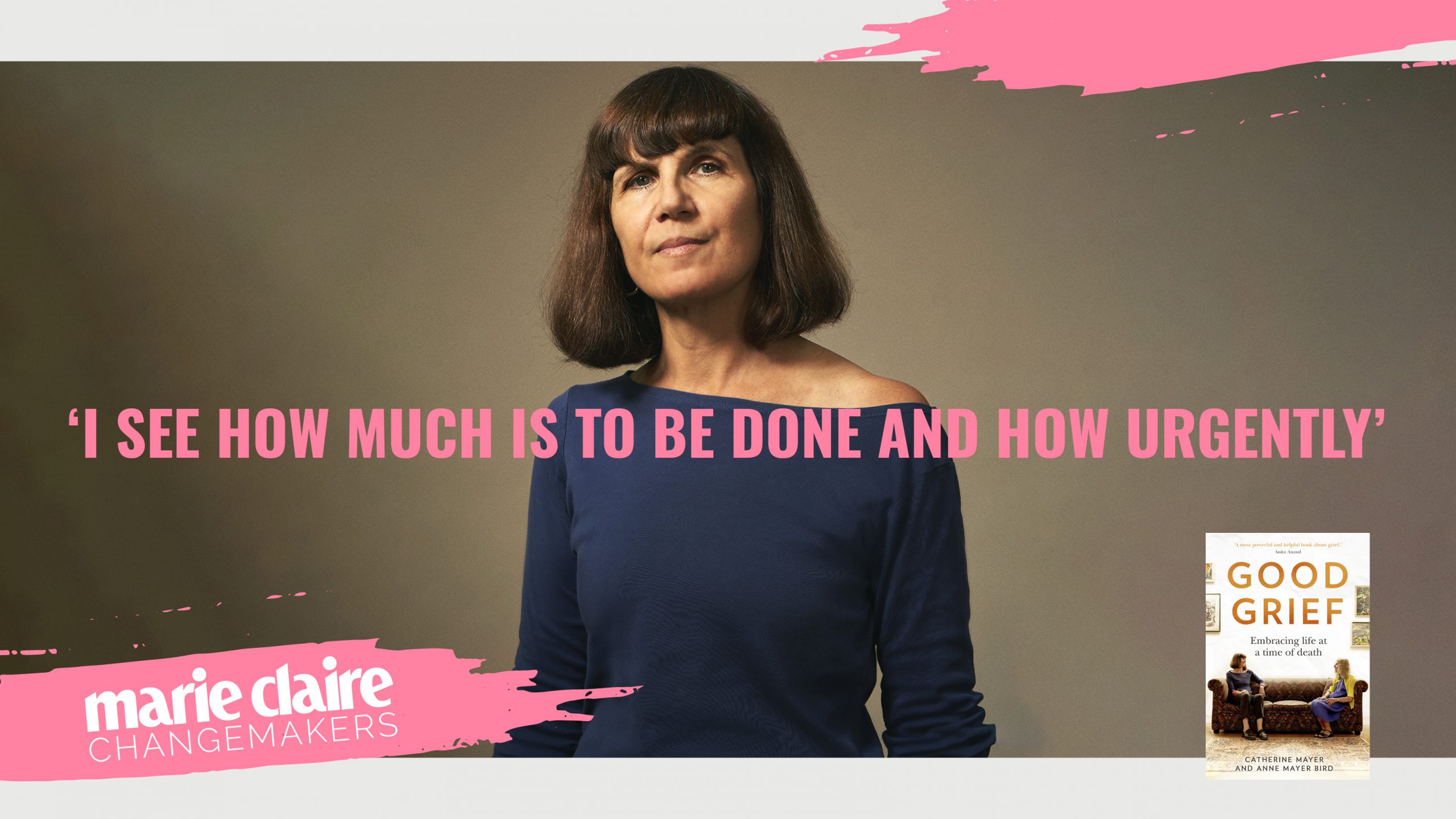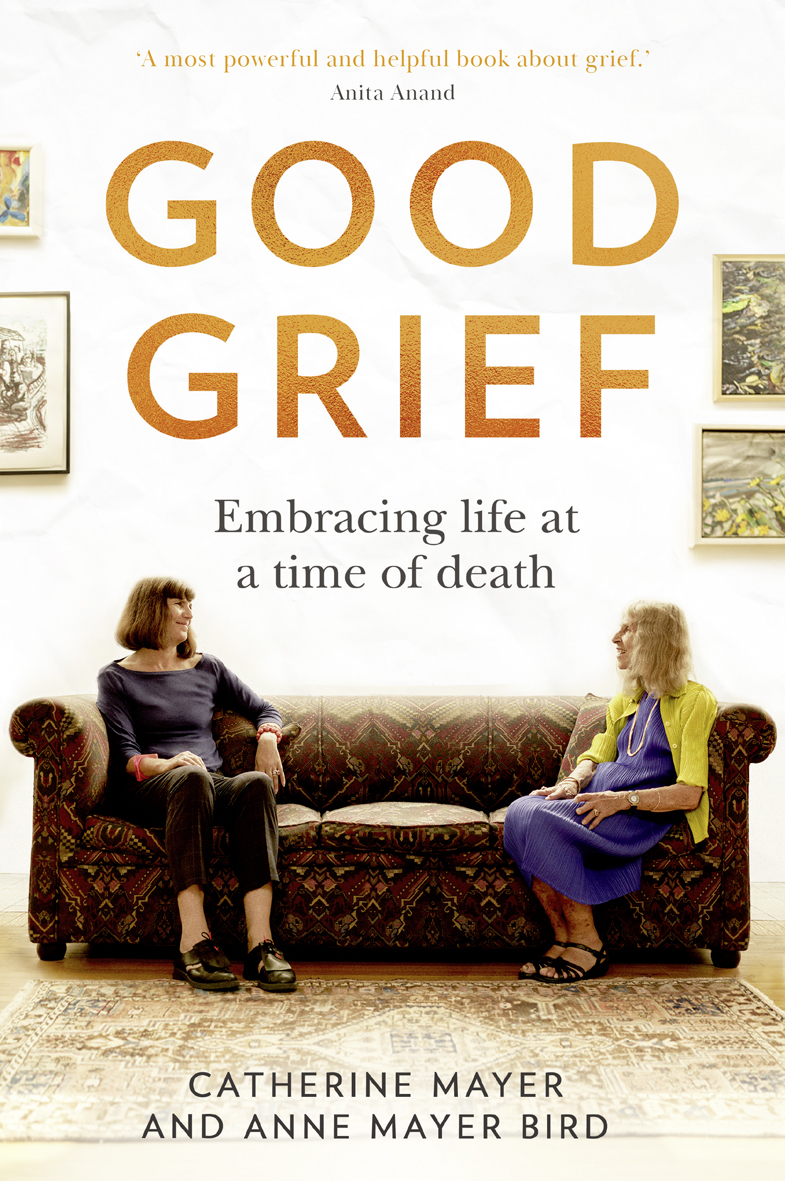Catherine Mayer on women's rights: 'I see how much is to be done and how urgently'
Co-founder of the Women's Equality Party, Catherine Mayer, was married to influential musician Andy Gill until his death in Feb 2020. This International Women's Day, Mayer shares with affecting honesty how grief adds clarity to her life-affirming activism


Co-founder of the Women's Equality Party, Catherine Mayer, was married to influential musician Andy Gill until his death in Feb 2020. This International Women's Day, Mayer shares with affecting honesty how grief adds clarity to her life-affirming activism
I was five years old when my father introduced me to the concept of grief, casting me in a production of the Greek tragedy, “The Trojan Women”. I played a Trojan child, one of many torn from a female population already grieving loss upon loss, of their menfolk, their homeland, their liberty. Abused and subjugated, the women in the play are not only bereaved, but disempowered.
Throughout my formative years, culture high and low served up variations on this theme, weeping widows, wailing mothers, grief-crazed girls. The only relief came in the form and agency of villainesses, Black Widow, both a Marvel assassin and the unrelated titular serial killer of a 1987 movie (‘she mates and she kills’); or Jane Eyre’s cruel and self-indulgent Mrs Reed. I absorbed, too, society’s contrasting expectations of male grief. Sorrow, it seems, turns to men to stone, but for the tiny veins that pulse at their temples and granite jaws.
A catastrophic loss
It wasn’t hard to figure out which model to emulate. When, in my thirties, grief first visited me for real, I drew on the male ideal, congratulating myself on staying strong for others. Only later would I realise how close I had come to shattering like a flower dipped in liquid nitrogen. Even then, I didn’t interrogate my prejudices about how to do grief or realise that none of the models work. It has taken a year of catastrophic loss, public and private, to unpick the lessons of my early life.
My sudden widowhood in February 2020 forced me to understand how toxic are gendered narratives of grief and how rooted in inequality. As the world navigates the impacts of Covid-19, the unconscionable numbers of dead and bereaved, dreams and livelihoods lost, we all face an opportunity and an imperative. We can and must change the cultures and structures that deepen our pain.
Women locked down by an older pandemic
My beautiful husband died at the start of the pandemic, my lovely stepfather 41 days before him. Lockdown isolated my mother and me in our fresh losses, each of us living alone. Yet by comparison to many women, we are lucky, not least in the palette of rights we enjoy. In some countries, widows are not only deprived of inheritances but treated as inheritance, to be passed on and enslaved. According to the United Nations, 47% of widows globally subsist in extreme poverty. Nor are such inequalities limited to the developing world.

Covid-19 exacerbated an older pandemic, locking down women with their violent abusers; offences are spiking and calls to helplines multiplying. The virus continues to seek out society’s most disadvantaged, with UK death rates higher among Black and Asian communities more likely to live, work and commute in crowded and risky conditions. Disregard for the old and the disabled has played out in a huge toll of preventable deaths. Employment has dropped more sharply among female than male workers. All the while women, as ever, are trying to hold everything together with unpaid labour, shouldering greater burdens of carework and homeschooling.
Celebrity news, beauty, fashion advice, and fascinating features, delivered straight to your inbox!
We must challenge
Grief is a strange beast. It can scramble our circuitry. My memory is far less reliable than it was. Yet it also provides clarity. It’s hard to sweat the small stuff when the person you love most has died. It’s unthinkable to waste time when you would trade anything for a few minutes of his company.
With that clarity, I see how much is to be done and how urgently. Migrant women are being access to refuges under the practice of stamping their passports “no recourse to public funds”. Hotel rooms stand ready for quarantining travellers, but not for these vulnerable women. I am working with the Women’s Equality Party to tackle this issue and the social and economic gender gaps the pandemic has exposed.
That these hurt men as well as women couldn’t be clearer in the case of grief itself. It’s bad enough in normal times, when friends and families can gather at bedsides and gravesides, take comfort in rituals and ceremonies and the warmth of hugs. These days hundreds of thousands of us are grieving in isolation, denied last words and last rites, deprived of touch, and forced, irrespective of gender, into approximations of stony male grief.
All that repressed sorrow will not dissipate. Some of it is bound to take different and damaging forms. To mitigate that danger, we must recognise the scale and nature of the problem, discard everything we think we know about how to grieve appropriately, find ways to open up to conversations about loss, to engage with grief, even to embrace it. We won’t need to look far for inspiration. Our lovely dead are gone, but our love for them remains to guide us.
* Catherine Mayer’s book, Good Grief: Embracing Life at a Time of Death, co-written with her mother Anne Mayer Bird, is out now (HQ , £16.99).
Maria Coole is a contributing editor on Marie Claire.
Hello Marie Claire readers – you have reached your daily destination. I really hope you’re enjoying our reads and I'm very interested to know what you shared, liked and didn’t like (gah, it happens) by emailing me at: [email protected]
But if you fancy finding out who you’re venting to then let me tell you I’m the one on the team that remembers the Spice Girls the first time round. I confidently predicted they’d be a one-hit wonder in the pages of Bliss magazine where I was deputy editor through the second half of the 90s. Having soundly killed any career ambitions in music journalism I’ve managed to keep myself in glow-boosting moisturisers and theatre tickets with a centuries-spanning career in journalism.
Yes, predating t’internet, when 'I’ll fax you' was grunted down a phone with a cord attached to it; when Glastonbury was still accessible by casually going under or over a flimsy fence; when gatecrashing a Foo Fighters aftershow party was easy-peasy-lemon-squeezy and tapping Dave Grohl on the shoulder was... oh sorry I like to ramble.
Originally born and bred in that there Welsh seaside town kindly given a new lease of life by Gavin & Stacey, I started out as a junior writer for the Girl Guides and eventually earned enough Brownie points to move on and have a blast as deputy editor of Bliss, New Woman and editor of People newspaper magazine. I was on the launch team of Look in 2007 - where I stuck around as deputy editor and acting editor for almost ten years - shaping a magazine and website at the forefront of body positivity, mental wellbeing and empowering features. More recently, I’ve been Closer executive editor, assistant editor at the Financial Times’s How To Spend It (yes thanks, no probs with that life skill) and now I’m making my inner fangirl’s dream come true by working on this agenda-setting brand, the one that inspired me to become a journalist when Marie Claire launched back in 1988.
I’m a theatre addict, lover of Marvel franchises, most hard cheeses, all types of trees, half-price Itsu, cats, Dr Who, cherry tomatoes, Curly-Wurly, cats, blueberries, cats, boiled eggs, cats, maxi dresses, cats, Adidas shelltops, cats and their kittens. I’ve never knowingly operated any household white goods and once served Ripples as a main course. And finally, always remember what the late great Nora Ephron said, ‘Everything is copy.’
